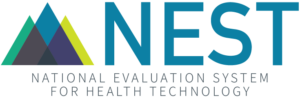December 9, 2020
This Test-Case is focused on designing, collecting, and examining real-world data (RWD) about the novel application of an endovascular stent graft for patients with complex abdominal aortic aneurysms. Stent grafts prevent aneurysms from rupturing and potentially causing death.
This project used three unique data sources and a specific case identification algorithm to study new ways surgeons have adapted an existing stent graft. Data was collected from three RWD sources: the Vascular Quality Initiative (a Coordinated Registry Network that is part of MDEpiNet), a statewide clinical research network (OneFlorida), and a regional quaternary health system (DukeHealth).
The project leaders for this Test-Case discussed the focus, execution, and findings of the study at the NEST Forum. Below are some key takeaways from the presentation:
NESTcc is committed to building partnerships and linking data across the medical device ecosystem to enable effective research.
Dr. Phillip Goodney highlighted the value of the partnerships formed throughout this project, “We’ve been fortunate to partner with MDEpiNet and VQI as our goals are similar in that we both hope to use linked data repositories and research publications, registry reports, and surveillance mechanisms to provide input and insight on the long-term durability of vascular interventions.”
Real-World Evidence has the potential to streamline data collection to benefit various stakeholders.
Mr. James Williams, Clinical Strategy Director for W.L Gore & Associates, noted the value of real-world evidence (RWE) for clinicians in the post-market setting. “We definitely see the potential of real-world evidence to collect data from more sites in a more rapid fashion, which is definitely appealing from a project management perspective. And the data itself actually may be more powerful in post-approval use as healthcare systems and even doctors may consider this data to be more realistic.”
NESTcc is committed to realizing the benefits of RWE through its research and Test-Cases.
Dr. Carmen Gacchina Johnson of FDA’s Center for Devices and Radiological Health (CDRH) discussed the potential for RWE to benefit regulatory decision-making. “Although there is no change to the existing evidentiary standards applicable to FDA regulatory decision-making, we are hopeful that if leveraged correctly, real-world evidence may help reduce the time and cost of generating evidence to support regulatory decision-making.” This Test–Case allows researchers to better understand how RWE can be developed for potential regulatory submissions.
Dr. Goodney summarized the results of the Test-Case in his closing statement. “We were pleased that overall, this Test-Case allowed us to successfully collect demographic and short-term outcomes data for these patients using a variety of real-world evidence platforms. In general, the patients did quite well with a low rate of complications and essentially no intra-operative severe events. I think these results highlight the potential to expand these types of data collection mechanisms for availability and use both in research and regulatory monitoring.”
Thank you to the partners and experts who joined us to discuss this Test-Case. We look forward to our continued conversation and collaboration on issues of pressing importance to the medical device ecosystem.
The NEST Forum shared insights and perspectives on NEST’s use of real-world data to move safety and innovation forward and help change the paradigm of clinical research. We are grateful for the medical device ecosystem leaders who joined us and look forward to continued conversation and collaboration on issues of pressing importance to health care.
All session recordings are available on the NEST Forum event page.


